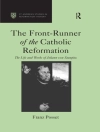In ‘Marion Fay, ‘ Anthony Trollope masterfully intertwines social commentary with a rich narrative, set against the backdrop of Victorian England. This novel follows the complexities of human relationships and familial bonds through the lens of its titular character, Marion Fay, who grapples with love, societal expectations, and personal aspirations. Trollope’s characteristic wit and keen observation of social hierarchies shine through in this work, offering a nuanced exploration of the constraints placed upon women during the 19th century. The prose is marked by a delicate balance of humor and pathos, revealing the intricacies of the human condition within a rapidly changing society. Trollope, a prominent figure in Victorian literature, brings to ‘Marion Fay’ his extensive experience as both a novelist and a civil servant, which allowed him a unique perspective on the social issues of his time. Born into a middle-class family, he faced various personal challenges that informed his writing, particularly concerning gender roles, class distinctions, and the moral dilemmas individuals faced. His ability to craft vivid, relatable characters was honed through his keen observations of society and its institutions. This novel is highly recommended for readers interested in classic literature that delves into the psychological complexities of its characters while providing a critical view of societal norms. Trollope’s richly developed narrative invites readers not only to indulge in the story of Marion Fay but to reflect on the broader implications of choice, freedom, and identity in a constricting society.
Despre autor
Anthony Trollope (1815–1882) was an English novelist of the Victorian era, renowned for his richly textured narratives and acute observations of the social and political dynamics of his time. His career in the British postal service provided the backdrop for his extensive travels and exposure to varying classes of society, which greatly influenced his writing. Trollope penned 47 novels, an autobiography, and numerous short stories and articles. His works often explored themes of social strife, personal integrity, and the tension between tradition and modernity. ‘Marion Fay’ (1882), one of Trollope’s later novels, is a poignant example of his talent for creating authentic and morally complex characters. The novel intertwines issues of class and gender, and reflects Trollope’s progressive views on the institution of marriage and the societal expectations of women. Probably best known for his Chronicles of Barsetshire and Palliser series, Trollope’s literary style is characterized by a realistic, sometimes satirical, portrayal of Victorian England, imbued with his signature irony and moral insight. His influence on later writers and his contribution to the English novel have made him a respected figure in literary history, earning him a place among the canon of classic English novelists.












